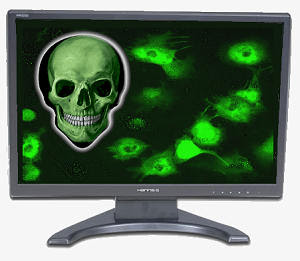 If you’ve ever had to deal with spyware on your computer, you’re not alone…
If you’ve ever had to deal with spyware on your computer, you’re not alone…
Experts estimate that 9 out of 10 computers are infected with spyware and that most users don’t even know it. And while not all spyware poses a threat to you or your personal information, there are certain types of spyware that certainly fall into that category.
There are two types of spyware that can be particularly dangerous and leave you vulnerable to identity theft or other types of fraud. The first type of software is called a keylogger, which are sometimes packaged as part of a spyware application. These programs monitor your keystrokes as you work on your computer, perhaps checking your bank account online, logging in to check email or other password protected sites. Once your keystrokes are captured, this information can be sent back to the spyware program’s creator who can use that information for identity theft. Some experts estimate that this type of activity has resulted in billions of dollars worth of fraud just in the U.S. and a countless number of victims. Of course, this all could have been avoided if they had properly secured their systems…certainly a tough lesson to learn the hard way.
The second type of program is a dialer. These are becoming less and less common since many people are making the switch to broadband internet connections (i.e., cable modems, DSL, satellite, or fiber optics). However, the way these programs work is to take advantage of users who still use a regular modem and phone line to connect to the internet. But instead of dialing in to the Internet Service Provider, the program causes the modem to dial a long-distance number instead, often times an overseas number. You can imagine how quickly this could run up your phone bill, but as stated previously, these are becoming less effective thanks to high-speed internet connections.
Either way, spyware can definitely pose a threat to your personal information or business data by allowing hackers unfettered access to your system. We recommend that you incorporate a firewall, anti-virus program and anti-spyware program into your suite of tools to keep your system free of spyware and that you practice safe computing habits in terms of the sites you visit and programs you download. That way you are less likely to come in contact with spyware and will have the necessary software tools to keep your system secure as another layer of defense.
By: Kevin Nelson
Check Out the Related Article : Computer Slow Processing Problems
Can Spyware Really Put Your Personal Information at Risk?

Other Topic
Click Here to Know How you can Link Exchange with Me









0 comments:
Post a Comment